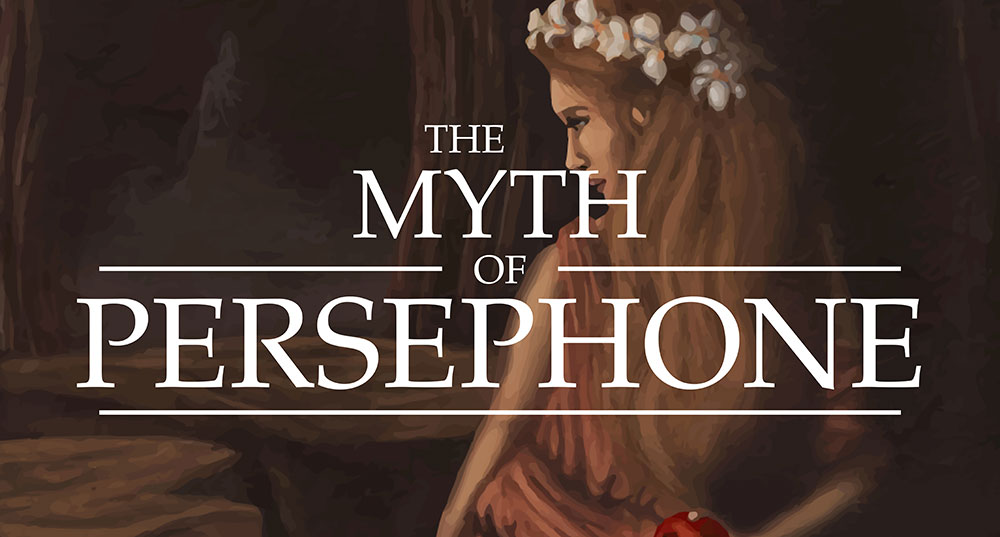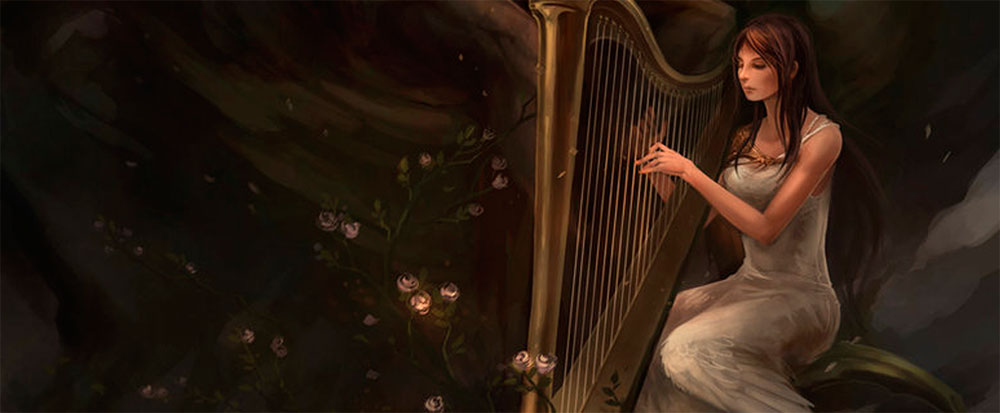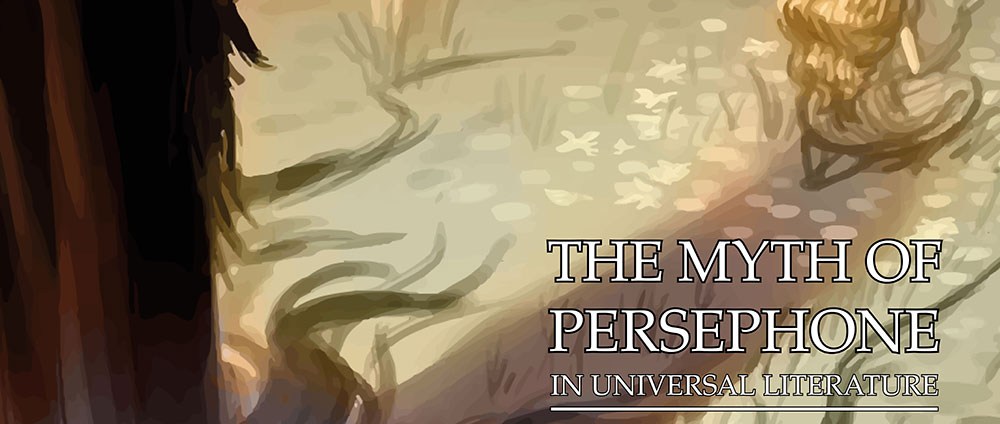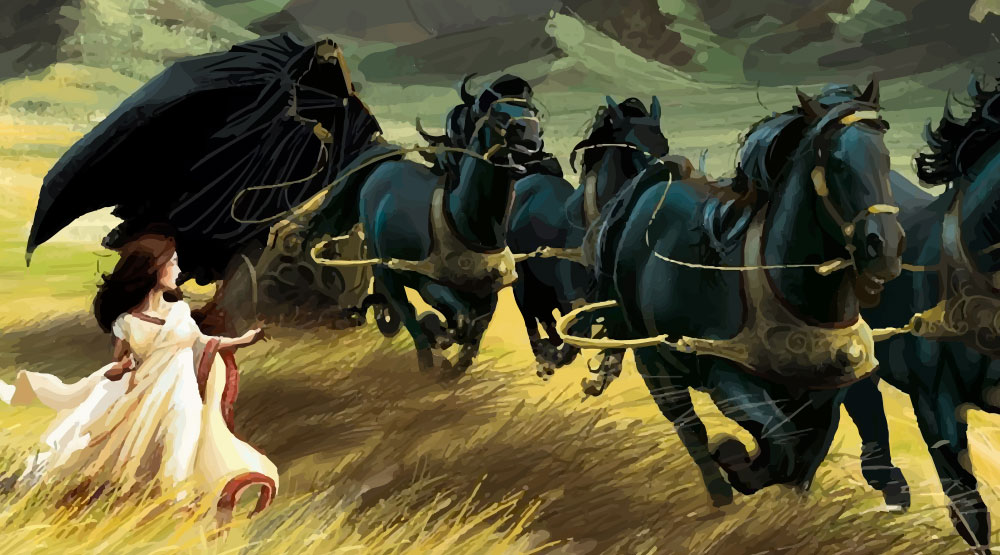The Myth of Persephone In Universal Literature

Contents of the presentation
- What Is A Myth?
- The Myth of Persephone
- Modern Works Featuring the Figure of Persephone In Literature and Arts
Transcript of part of the myth

Persephone was the daughter of Zeus (the god of gods) and Demeter (the goddess of agriculture). She and her mother preferred to live outside the Olympus, in the forests, living a life of peace and freedom.
One day Persephone was picking up flowers when suddenly Hades, the god of the underworld, came up to where she was to kidnap her. She tried to escape, but at the end he got her and abducted her.
In the underworld they spent time together. In the meantime Demeter, the mother of Persephone, was very unhappy because she didn’t return home and was asking the whole time to herself: “Where is my dear daughter?”. She completely forgot about taking care of the Earth, so it stopped to growing up and giving food. The situation on the Earth was so precarious that Zeus ordered Hades to free Persephone. But Hades had other wills. That night he gave to her a pomegranate, but it was a trap: for every seed she ate she would have to stay with him for a week. And she ate it, becoming the queen of the underworld.
Persephone was very sad, as well as her mother. When she was in the underworld winter came because her mother was unhappy and couldn’t take care of the Earth, and when Persephone was free with her mother spring and beauty came with her.
But deep in her heart she knew she had to return with her husband forever. And that’s what she did, but this turned her into what she became when she got married with the god of the underworld: an evil queen, forgotten in pain and darkness. After that she became a terrible goddess with awful characteristics, always threatening and foretelling death and destruction. But that’s another myth.


